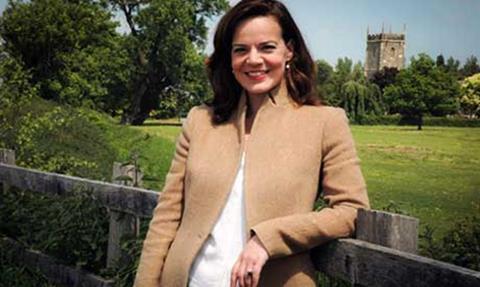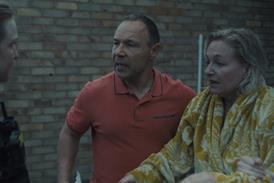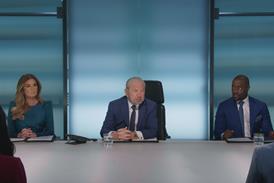“It was the medieval equivalent of filming a documentary on contemporary childbirth solely in the Lindo Wing.” Read on for the verdict on last night’s TV.

Medieval Lives: Birth, Marriage, Death, BBC4
“Castor is an excellent, engaging storyteller, with a strong feminist undercurrent to her analysis. There are child brides, superstitions, gruesome births, curious traditions, rules about sex and death and life handed down by supposedly celibate male clerics. It’s fascinating.”
Rebecca Nicholson, The Guardian
“This story of teenage pregnancies and stillbirths was compelling enough but hardly informed us about life for the average 15th-century woman: it was the medieval equivalent of filming a documentary on contemporary childbirth solely in the Lindo Wing.”
Tom Rowley, The Telegraph
“For anyone who enjoyed The White Queen last summer, it was fascinating to delve into the reality of women’s lives during the 15th century.”
Christopher Stevens, Daily Mail
“Medieval Lives does its best to put the record straight, giving us love letters, touching funeral rights and a slew of other evidence to suggest that people in the past might have been, wait for it, just like us.”
Matt Baylis, Daily Express
“The nice thing about medieval history is that it allows one to draw inferences from rather few resources. From hers Castor made a convincing case that although men were barred from the birthing chamber, the Church remained a real and often comforting presence to mothers.”
Andrew Billen, The Times
Fat For Cash, Channel 5
“This ‘documentary’ really was a point-and-laugh slideshow… Channel 4 covered this fetish in the 2003 documentary Fat Girls and Feeders, but this newer, brasher version has stripped away even the pretence of investigative journalism.”
Rebecca Nicholson, The Guardian
“This only averagely lurid documentary followed three women who have translated their super size into both a steady income and a confidence boost… For all their talk of body confidence, these women were still allowing the sexual attention of strangers to define their worth and endanger their health. That’s not fabulous, that’s just sad.”
Ellen E Jones, The Independent
“Only in the US of A, surely, could being morbidly obese turn into a business opportunity… Everyone interviewed seemed to confuse the money they earned and the interest of paying strangers with what they really wanted, which was love.”
Matt Baylis, Daily Express
Dan Snow’s History of Congo, BBC2
“Snow was such an affable guide, that none of this felt like ‘look at me’ television. No, we looked, open-mouthed at Congo, its rapids and cities, its vast open-cast mines and its second-hand clothes markets… This was no misery documentary, overwhelmed by swollen-bellied children and victims of rape.”
Christopher Howse, The Telegraph
“Dan Snow’s History Of Congo was more like a Blue Peter Holiday than the serious documentary it wanted to be… He shouted his commentary over the noise of his motor launch as they stormed upriver; he shouted over his shoulder in a LandRover bouncing over potholes; he kept on shouting as he rode the running-board hanging off a railway carriage. The narrative was just as hyper-active, pinging about from the slave trade to hydroelectric power in the space of a sentence.”
Christopher Stevens, Daily Mail
“It was slightly irritating that this film was billed as an ‘adventure’. One could also question the taste of Snow in getting president’s Mobutu’s ex-chef to prepare a champagne dinner for him in the ruins of his bizarre palace. Would I have watched an hour of a presenter’s bleeding heart though?”
Andrew Billen, The Times
Muhammad Ali’s Greatest Fight, Sky Atlantic
“As a film drama, it was worth watching in the comfort of the home, but if it had been shown in a cinema, it would hardly have been worth stirring from the fireside for.”
Christopher Howse, The Telegraph
The Great British Year, BBC1
“Joseph Fiennes’s voiceover remains distractingly stagey and this episode contained fewer stories than last week’s opener: the stop-motion photography was glorious, but our attention wandered during unconnected sequences of imagery.”
Christopher Stevens, Daily Mail





























No comments yet